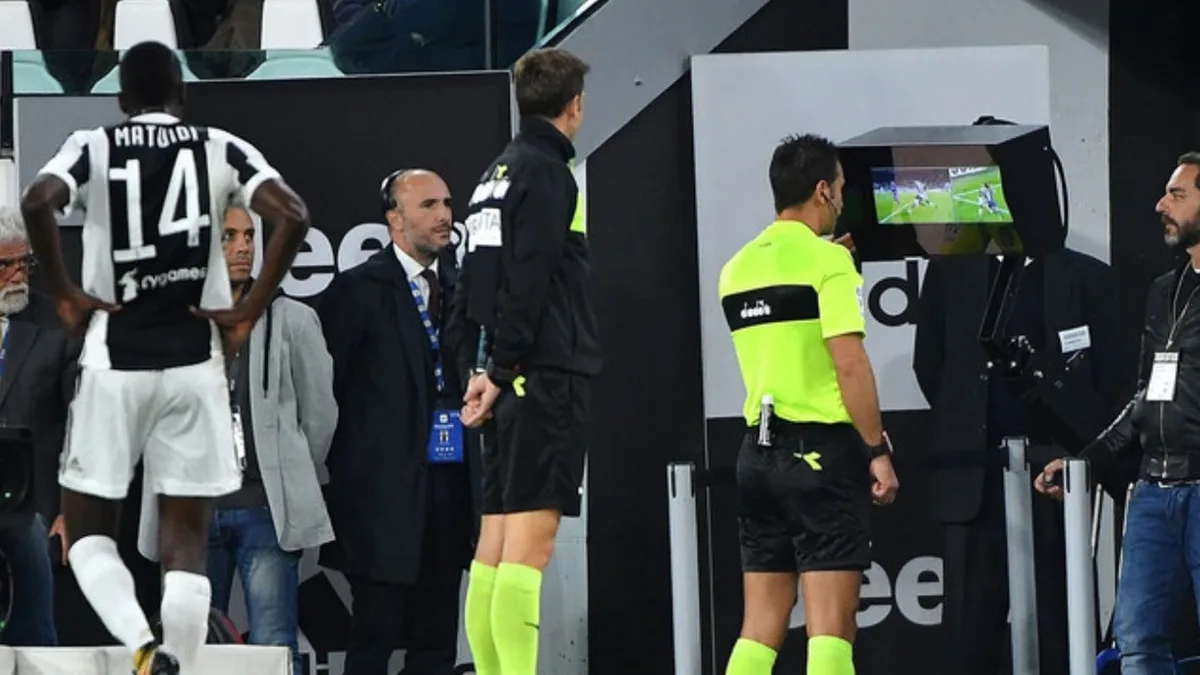
Video Assistant Referee (VAR) technology has been a hot topic in the world of football, sparking intense debates among fans, players, and officials. Introduced with the aim of enhancing the accuracy of decision-making on the field, VAR has undeniably brought about a revolution in the sport. However, its implementation has not been without controversy, leaving many to question whether VAR is truly a game-changer or if it risks ruining the essence of football. Use mostbet-pt.mobi if you want to bet on football at the best odds.
The Pros of VAR: Enhancing Fairness and Accuracy
One of the primary advantages of VAR is its potential to enhance fairness and accuracy in decision-making. The technology allows referees to review critical incidents, such as goals, penalties, and red card situations, with the assistance of video footage. This has proven beneficial in rectifying clear errors that may have otherwise gone unnoticed. VAR’s ability to minimize human error has been lauded, providing a sense of justice and fairness to teams and players. Moreover, VAR promotes transparency, as fans can witness the decision-making process unfold in real-time, fostering a greater understanding of the game’s intricacies.
Improved Offside Decisions: A Game-Changer
VAR’s impact on offside decisions has been a game-changer. The technology’s precision allows for a more accurate determination of offside positions, eliminating contentious situations where a player might have been incorrectly flagged for an offside offense. This has led to a fairer adjudication of tight calls, contributing to a more level playing field and reducing the likelihood of undeserved outcomes. The increased accuracy in offside decisions aligns with the broader goal of VAR – to ensure that the outcome of a match is determined by the players’ skill and performance rather than officiating errors.
Controversies and Challenges: VAR’s Dark Side
Despite its potential benefits, VAR has not been immune to criticism and controversies. One major concern is the disruption it causes to the flow of the game. Lengthy stoppages for VAR reviews can lead to frustration among players, coaches, and fans, disrupting the natural rhythm and excitement of football. Additionally, the subjective nature of certain decisions, such as handball interpretations, has led to inconsistent rulings that have left stakeholders perplexed. Critics argue that VAR has introduced a new set of controversies rather than alleviating existing ones, raising questions about its overall impact on the sport.
The Human Element: Preserving the Spirit of Football
One of the fundamental debates surrounding VAR revolves around the essence of football and the role of human judgment in the game. Traditionalists argue that the beauty of football lies in its imperfections and that the introduction of technology threatens the spontaneity and emotion that make the sport beloved worldwide. The thrill of celebrating a last-minute goal or the agony of a controversial decision is an integral part of football’s charm, and some fear that VAR erodes these emotional connections by subjecting every decision to meticulous scrutiny. Striking the right balance between technology and maintaining the human element is a challenge that football’s governing bodies must grapple with to ensure the sport’s continued appeal.
Striking a Balance for the Future
In conclusion, VAR has undoubtedly brought about significant changes in the landscape of football, both positive and negative. While it has enhanced fairness and accuracy in crucial decisions, its implementation has not been without challenges and controversies. Striking a balance between leveraging technology for improved officiating and preserving the spontaneity and emotion of the beautiful game remains a crucial task for football authorities. As VAR continues to evolve, addressing concerns and refining its application will be essential to ensure that football remains a sport that captivates fans worldwide while embracing the benefits that technological advancements can bring.
Game on! Track the buzz in football, tennis, Cricket, and more in PanAsiaBiz's Sports section.
From pitch to court and ring to track, PanAsiaBiz brings the action closer.

